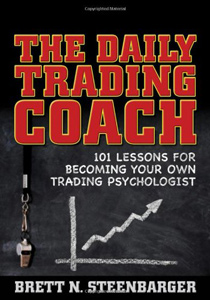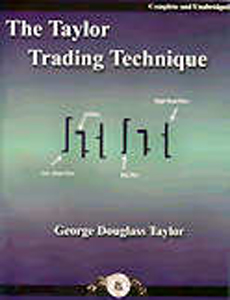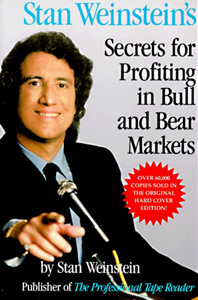When Genius Failed
John Meriwether, a famously successful Wall Street trader, spent the 1980s as a partner at Salomon Brothers, establishing the best and the brainiest bond arbitrage group in the world. A mysterious and shy mid westerner, he knitted together a group of Ph.D.-certified arbitrageurs who rewarded him with filial devotion and fabulous profits. Then, in 1991, in the wake of a scandal involving one of his traders, Meriwether abruptly resigned. For two years, his fiercely loyal team convinced that the chief had been unfairly victimized plotted their boss's return. Then, in 1993, Meriwether made a historic offer. He gathered together his former disciples and a handful of super economists from academia and proposed that they become partners in a new hedge fund different from any Wall Street had ever seen. And so Long-Term Capital Management was born.
Four years later, when a default in Russia set off a global storm that Long-Term's models hadn't anticipated, its supposedly safe portfolios imploded. In five weeks, the professors went from mega-rich geniuses to discredited failures. With the firm about to go under, its staggering $100 billion balance sheet threatened to drag down markets around the world. At the eleventh hour, fearing that the financial system of the world was in peril, the Federal Reserve Bank hastily summoned Wall Street's leading banks to underwrite a bailout. When Genius Failed: The Rise and Fall of Long-Term Capital Management is the cautionary financial tale of our time, the gripping saga of what happened when an elite group of investors believed they could actually deconstruct risk and use virtually limitless leverage to create limitless wealth. In Roger Lowenstein's hands, it is a brilliant tale peppered with fast money, vivid characters, and high drama.
From the moment Long-Term opened their offices in posh Greenwich, Connecticut, miles from the pandemonium of Wall Street, it was clear that this would be a hedge fund apart from all others. Though they viewed the big Wall Street investment banks with disdain, so great was Long-Term's aura that these very banks lined up to provide the firm with financing, and on the very sweetest of terms. So self-certain were Long-Term's traders that they borrowed with little concern about the leverage. At first, Long-Term's models stayed on script, and this new gold standard in hedge funds boasted such incredible returns that private investors and even central banks clamored to invest more money. It seemed the geniuses in Greenwich couldn't lose.
In a decade that had seen the longest and most rewarding bull market in history, hedge funds were the new plus ultra of investments: discreet, private clubs limited to those rich enough to pony up millions. They promised that the investors' money would be placed in a variety of trades simultaneously a "hedging" strategy designed to minimize the possibility of loss. At Long-Term, Meriwether & Co. truly believed that their finely tuned computer models had tamed the genie of risk, and would allow them to bet on the future with near mathematical certainty. And thanks to their cast which included a pair of future Nobel Prize winners investors believed them.
Positive Review of Book
I was sorry to see this one end. What a great story about knowing your weaknesses. Some people will characterize this as a story of arrogance and greed, but to me, that misses the point. Not that these guys weren't arrogant and greedy - they were - but that isn't what got them into trouble. Instead, they made a mistake that can be made by anybody at any time, they failed to recognize and deal with their weaknesses.
It is the universal nature of that mistake tat makes this book so fascinating to me. If the rocket scientists of Long-Term Capital Management with all of their genius for risk-assessment can miss this pitfall, then so can anybody. Besides, it's a lot easier and more fun to learn about a mistake you can avoid by reading about somebody else making that mistake and nearly dragging down the whole world's financial markets in the process.
Negative Review of Book
This book was poorly written, poorly edited, and abounds in bad and misleading metaphors and badly presented explanations of the industry and its technical concepts. Even a few grammar and vocabulary slip-ups. Stuff I can't believe got past his editors. This book deals with a fascinating topic in such a slipshod way that it is maddening to read, and impossible to respect as a piece of journalism. I want my money back. So lousy I was moved to write my first amazon review!
Author Biography
Roger Lowenstein, an American financial journalist, reported for the Wall Street Journal for more than a decade, including two years writing its "Heard on the Street" column, 1989 to 1991. Before becoming a full time journalist, Lowenstein was an attorney with various New Jersey law firms.
Lowenstein has published three books and co-authored one. In addition, he has written for many publications, including Smart Money and The New York Times. Lowenstein is a regular book reviewer for The New York Times and has written a number of major articles and cover stories for the The New York Times Magazine. He is also a director of Sequoia Fund. His father, Louis Lowenstein, was an attorney and Columbia University law professor who wrote books and articles critical of the American financial industry.
Table of Contents
- The rise of long-term capital managment
- Meriwether
- Hedge fund
- On the run
- Dear investors
- tug-of-war
- a nobel prize
- The final of long terms capital managment
- Bank of volatility
- the fall
- The human factor
- At the fed
Discover more Trading books at BookofTrading.com!
- How to Trade Forex and Gold Options
- How to Trade the Gold Price and Profit!
- Forex Trading the EUR/USD Pair € EURO and $ US Dollar
- How to Trade Stock Market Indices S&P500
- How to Trade Crude Oil
- Forex Trading Psychology
- What Are Broker Recommendations?
- Free Tickets to Trading & Investing Seminar & Expo ($18) Brisbane 2013
- Stock Calc App
- All About Warrants
- Introduction to Exchange Traded Funds
- Introduction to Exchange Traded Funds: Features
- Introduction to Exchange Traded Funds: Domestic ETFs
- Introduction to Exchange Traded Funds: International ETFs
- Exchange Traded Commodities
- Australian Stock Scan
- Australian Online Share Trading
- List of Trading Books
- Interesting Thoughts about the Australian Dollar
- What's the Meaning of Hawkish?
- Do You Know How To Use the P/E Ratio
- Trading, Religion and Politics - Do They Have Anything in Common?
- Shares that are Volatile that Double and Half in the Short Term
- Telstra (TLS) T3
- Margin Call by E-mail
- The Cost of Holding a Position
- Lack of Disclosure: Compensation from ASX Listed Company
- Unrealistic Returns and Benchmarks
- CMC Markets Down
- Quality versus Quantity Forex Trading
- Woolworths 1H Sales $30.7bn up 3.2%
Date added 31-01-2013 - ASIC Fines CommBank's CommSec
Date added 25-09-2012 - Industry Super Network Calls to Ban High Frequency Trading (HFT)
Date added 22-09-2012 - NAB Launches Online Share Trading Platform
Date added 19-09-2012 - Reserve Bank of Australia Says 23 Countries Holding AUD
Date added 18-09-2012 - Australia Post Digital Mailbox
Date added 10-09-2012 - Winners and Losers of Trading for Week 2
Date added 16-01-2012 - 2012's First Week of the Best and Worst Traded Stocks
Date added 09-01-2012 - 2011's Last Best and Worst Traded Stocks
Date added 05-01-2012 - Best and Worst Pre-Christmas Traded Stocks
Date added 30-12-2011 - Trading Winners and Losers for Dec. 12-16
Date added 19-12-2011 - Best and Worst Traded Stocks for Dec. 5-9
Date added 13-12-2011 - Top 3 Best and Worst Traded Stocks
Date added 05-12-2011 - ASX Glitch Trading Halt
Date added 27-10-2011 - Worst Trade Stocks (and the Best)
Date added 06-08-2011
Top 150 Public Companies Listed on the Australian Stockmarket as at 29/05/2009
- BHP Billiton
- Westpac Banking Corporation (WBC)
- Commonwealth Bank of Australia (CBA)
- National Australia Bank (NAB)
- Telstra (TLS)
- ANZ
- News Corporation (NWS)
- Woolworths Limited(WOW)
- Woodside Petroleum Limited (WPL)
- Rio Tinto
- Westfield Group (WDC)
- Westfarmers Limited (WES)
- QBE Insurance
- CSL
- Newcrest Mining Limited (NCM)
- Origin Energy Limited (ORG)
- Santos Limited (STO)
- AMP Limited (AMP)
- Macquarie Group (MQG)
- Foster’s Group Limited (FGL)





